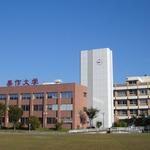Mimasaka University is a private university located in Tsuyama, Okayama Prefecture, Japan, founded in 1966. The university is known for its excellent education and research results in the fields of life sciences and human development, and is committed to cultivating talents with high professionalism and social responsibility. The following is a detailed introduction to Mimasaka University, including its history, subject settings, educational characteristics, campus facilities and other information.
Basic information
Name: Mimasaka University (Japanese: Mimasaka University, Mimasakadagaku)
English name: Mimasaka University
Abbreviation: Mimasaka
Address: 1-1 Ueno-cho, Tsuyama City, Okayama Prefecture
Establishment time: 1966
Type: Private university
Historical evolution
1915: The predecessor of the school, "Mimasaka High School for Girls", was established.
1966: Mimasaka University was officially established and began to provide undergraduate education.
1990s to present: Continuously optimizing the education system and improving the teaching quality, becoming a well-known private university in Okayama Prefecture.
Discipline settings
Mimasaka University has multiple departments and disciplines, covering life sciences, human development and other fields. The specific discipline settings are as follows:
Department of Life Sciences
Welfare and Social Creation Discipline: Cultivate professionals with knowledge of social welfare and social creation.
Children's Discipline: Cultivate professionals with knowledge of children's education and psychology.
Food Discipline: Cultivate professionals with knowledge of food science and nutrition.
Graduate School Settings
Graduate School of Life Sciences
Life Sciences Major: Cultivate research talents with advanced knowledge of life sciences.
Human Development Major: Cultivate research talents with advanced knowledge of human development.
Educational Features
Practical Education: Emphasize the combination of theory and practice, provide rich internships and practical activities, and help students accumulate practical work experience.
International Education: Actively promote international education, establish cooperative relations with universities in many countries, and provide overseas exchange programs.
Professional Training: Focus on students' professional skills training, and cultivate professionals with a solid theoretical foundation and practical ability.
Career support: There is a dedicated career guidance center that provides services such as career planning, employment consultation and internship recommendations.
Campus facilities
Library: It has rich book resources and a modern reading environment.
Laboratory: Equipped with advanced experimental equipment to support scientific research and practical teaching.
Sports facilities: Including gymnasiums, sports fields, etc., to promote students' physical and mental health.
Student dormitories: Provide comfortable accommodation environment to facilitate students' life and study.
Research Center
Welfare Society Research Center: Research various issues in the fields of social welfare and social creation, and provide support for social development.
Children's Education Research Center: Research various issues in the fields of children's education and psychology, and provide support for children's education.
Food Science Research Center: Research various issues in the fields of food science and nutrition, and provide support for food safety and health.
Student activities
Club activities: There are many student clubs covering academic, cultural, sports and other fields.
Volunteer activities: Encourage students to participate in community service and social welfare activities to cultivate a sense of social responsibility.
Admission requirements
Entrance examination: Usually includes written examination and interview. Please refer to the school's official website for specific requirements and procedures.
International students: Accept international students' applications, and they must meet language proficiency and other relevant requirements.
Contact Information
Tel: +81-868-22-1111
Fax: +81-868-22-1112
Email: info@mimasaka-u.ac.jp
School Motto
Spirit of the School: Self-reliance and Cooperation
Educational Philosophy: Through rigorous academic research and practical education, cultivate talents with high professionalism and social responsibility, and contribute to the development and progress of society.
Featured Courses
Welfare and Social Creation Discipline: The "Welfare and Social Creation Discipline" is specially set up to cultivate students' social welfare and social creation knowledge.
Children's Discipline: Provide "Children's Discipline" to help students master children's education and psychology knowledge.
Food Discipline: Provide "Food Discipline" to help students master food science and nutrition knowledge.
Employment Situation
Employment Rate: The employment rate of Mimasaka University graduates is relatively high, and many graduates have found satisfactory jobs in the fields of social welfare, children's education, food science, etc.
Notes
Reputation: Mimasaka University enjoys a good reputation in Okayama Prefecture and even throughout Japan, especially in the fields of life sciences and human development.
Further study: Graduates can choose to continue their studies in graduate school or other higher education institutions, or directly enter the workplace.
The above is a basic introduction to Mimasaka University. If you have more specific questions or need detailed information, it is recommended to visit the school's official website or contact the relevant department of the school directly.
-
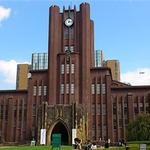
The University of Tokyo
-
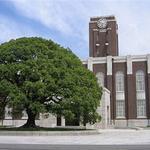
Kyoto University
-
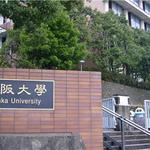
Osaka University
-
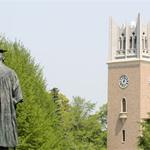
Waseda University
-
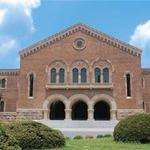
Hitotsubashi University
-
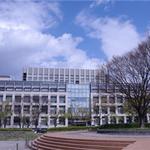
Nagoya University
-
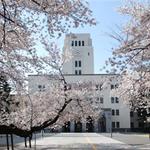
Tokyo Institute of Technology
-
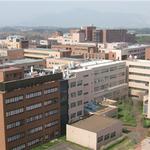
University of Tsukuba
-
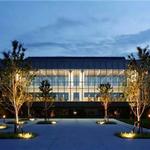
Keio University
-
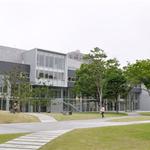
Tohoku University
-

Mesoamerican University
-

Istmo University
-

Mariano Galvez University of Guatemala
-

Regional University of Guatemala
-

Galileo University
-

Francisco Marroquín University
-

Rafael Landívar University
-

University of the Valley of Guatemala
-

University of San Carlos of Guatemala
-

Technological Institute of Tlaxcala Plateau
-

Golfo University
-

Technological University of South Sonora
-

Technological University of Huejotzingo
-

Tizimín Institute of Technology
-

Chilpancingo Institute of Technology

